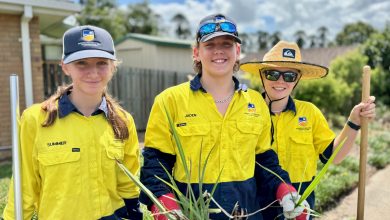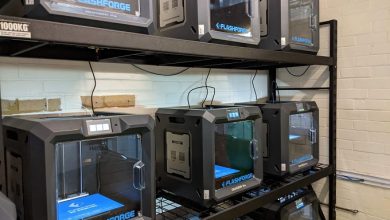Art, drama and music lower stress. Here’s what you need to know if you’re thinking of taking arts in years 11 and 12
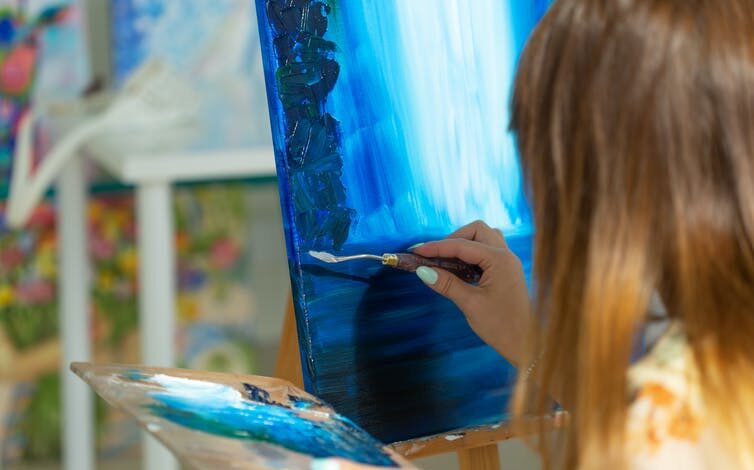
This article is part of a series providing school students with evidence-based advice for choosing subjects in their senior years.
If you’re thinking of taking a performing or visual arts subject in years 11 and 12, you are probably weighing up a few considerations. These may include your passion and interest in the subject, how doing one or two arts subjects might affect your entry into university and what you could do with the skills you learn.
Nearly 30% of all year 12 students across Australia (53,311 year 12 students in total) chose to study visual or performing arts in year 12 in 2019. But twice as many girls took an arts subject (40%) as boys (18%).
The arts subject selection you have will depend on what state you live in. But these are the types of subjects you can broadly choose from in visual and performing arts.
Visual arts
Visual arts is a theory-based subject. You will learn about different artworks and the role of artists in society. You will engage in discussions and writing tasks about what artworks mean. This includes ideas from historical and contemporary arts and culture.
In studio arts, you will learn about artists’ practices and the art industry while also developing your own art.
You will experiment with techniques and art processes in the mediums of your choice. These include photography, painting, drawing, printmaking, film, digital arts, ceramics or textiles. You will develop your own artworks, document this process and exhibit your work.

Media arts involves researching and learning about narrative across different media forms. You will demonstrate your understanding of production processes by designing a media product (such as a film or photographic exhibition) and presenting it.
Product design and technology involves learning about, and experimenting with, materials and processes. The materials will vary from school to school, but you may be able to choose from wood or timber, metal, fabrics, polymers, glass or ceramics. You will learn how to design and put these designs into production.
Performing arts
Dance will teach you about dance traditions, styles and works from different cultures. You will learn about music theatre, the work of tap or jazz or street performers, ballet and modern dance, and choreography. As you learn this content through theory and practice, you will engage in analysis of dance that will help you develop your own choreographed performance with others.
Drama involves studying practice and theory to understand the ways theatre and performance can communicate stories and ideas. You will explore different traditions of drama including costume, set design and lighting, make-up, masks, props and puppetry and sound design. You will ultimately create, develop and present a solo performance.

Music has different pathways depending on what state you live in. In the Victorian curriculum, there are three pathways culminating in units 3 and 4 of music investigation and music performance. These pathways require at least four years’ experience in learning an instrument. Another pathway, VET music industry, focuses on performing in public.
While each pathway and qualification is different, you will learn through listening, performing and composing. You will apply creative thinking skills to analyse and critique contemporary and historical music and musicians.
What benefits will I get through studying arts?
From my research and practice as an artist and university educator of 15 years, I know any of the year 11 and 12 art subjects will enable you to learn from extensive creative processes. Developing a set of paintings will require experimenting with techniques, learning from other artists, developing a theme or message to convey, and ensuring the subject matter in your paintings is suitable for conveying the message and appropriate for the style you are working in.
Your technique must be proficient to achieve good marks. You also need to document the development of your research and ideas with visual images you created and written statements in journals. This is somewhat risky as you are putting yourself out there. It must also come together in a certain time frame, which can be challenging and stressful.
But it will pay off as research shows arts education has many benefits.
Beyond technical knowledge and skills, benefits include actual enjoyment and stress relief. The senior years can be stressful years, so adding an arts subject to the mix can actually be a way to take care of yourself. It is well documented the arts offer mental health benefits as the focus on creating art is a form of mindfulness.
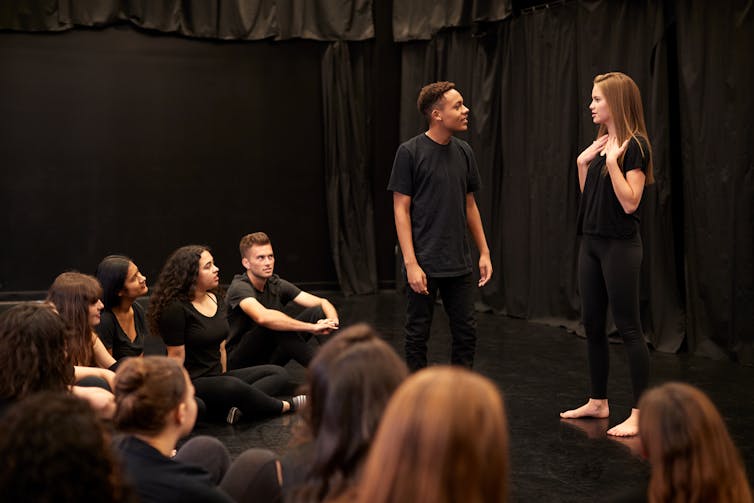
Creating art is a process of focusing on bringing together subject matter, technique and creative experience to communicate a story or an idea. The ability to express your feelings through the arts is a form of release. And reflecting on its meaning can provide insights into your self, which is therapeutic.
In addition, you will develop a range of skills that will help you in any area of life. Beyond creativity and thinking skills, research shows arts education will help you enhance your communication and expressive skills, as well as boosting your confidence and self-esteem. Teamwork, too, is a big part of the arts, and learning this skill will be helpful at university and in your future employment.
The presentation, communication and performance skills you learn are adaptable for public speaking, community and public art careers, as well as teaching.
Will doing the arts bring down my ATAR?
The ATAR is a university-based system that determines how many students will get into particular courses. Like a queue, it ranks you against everyone in the year 12 age group.
But university entry, particularly when it comes to the arts, doesn’t rely on ATAR. It often requires an interview process with presentation of a portfolio.
If you’re not looking to do arts at university, it’s still important to choose senior subjects you are interested in and good at. Plus, skills you learn in the arts can enhance your entry prospects. For instance, entry into a medical degree requires a high ATAR. But most universities also conduct an interview to test your empathy, collaboration and ethical reasoning skills – all of which are enhanced by the arts.
What will I do with these skills after school?
Many students who study senior art go on to study the visual and/or performing arts at university. Some become self-employed artists. Others practise art on the side and that helps them maintain a good balance in life.
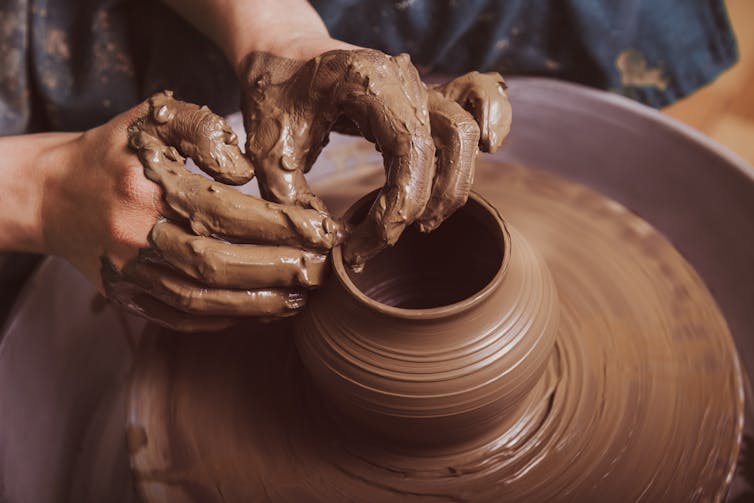
One ex-student, now in her late 20s, studied visual art and music in school but is now a psychiatric nurse who is also in a band. She said being a musician helps her cope with the stresses of her job.
Another ex-student, a 20-year-old male, studied the VCE VET in music industry as well as media arts, studio arts, visual arts, psychology and literature. He is a full-time intern in a technology company. He said the networking he does now is very close to what he had to do for the documentary he made in media arts. He also said his creative skills were helpful in the marketing material he designs.
You have to be a creative strategist to get people to give you time of day in sales and marketing.
Read the other articles in our series on choosing senior subjects, here.![]()

